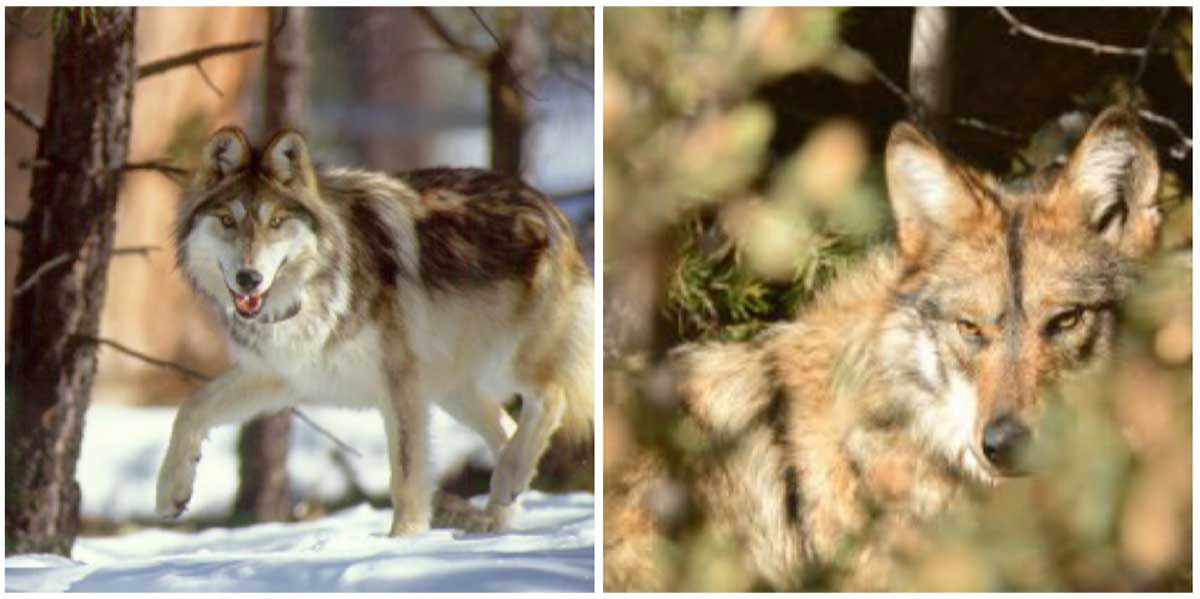New international research indicates encouraging the recovery of Mexican wolves outside their historic range of southeastern Arizona, southwestern New Mexico and Mexico’s Sierra Madre Mountains would be detrimental to the species. Doing so would encourage genetic mixing with northwestern wolves originally from Canada, which threatens the genetic uniqueness of the Mexican wolf.
“The latest science clearly shows that Mexican wolf dispersal outside the species’ historical range before it’s recovered will lead to the large wolves of Canadian origin genetically swamping the Mexican wolf,” said Arizona Game and Fish Department (AZGFD) biologist Jim Heffelfinger, who co-authored the study. “Our obligation is to make recovery decisions based on the latest research, solid science and management experience to preserve this unique wolf subspecies under the Endangered Species Act.”
Given the information above, this international research seems to fly in the face of a movement by extreme environmental groups seeking to introduce wolves into western Colorado.
Environmental groups are pushing for Mexican wolves to be placed as far north as southern Utah and southern Colorado despite earlier research shows that 90 percent of the animals’ historic range was south of the U.S.-Mexico border.
(Photo source: Arizona Game and Fish Department)
